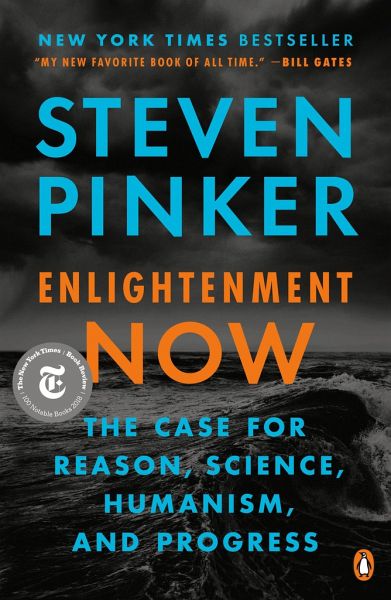

Snow’s “Second Culture” resent the incursion of science, data, and quantification into territories traditionally fenced off and claimed by them.

Some is turf-protective: some highbrow pundits, cultural critics, literary intellectuals, humanities professors, and other members of C.P. Snow’s “Second Culture” - agenda-driven humanities types opposed to “analytic reasoning.” In Pinker’s words: But when asked about the antipathy his book elicits, Pinker lumps all critics together, whether they’re “highbrow pundits” or “cultural critics” or academics who study the Enlightenment in humanities departments. These critiques have come from generalist critics as well as people who study the Enlightenment for a living. As a follow-up on his earlier book The Better Angels of Our Nature - which argues that violence has declined dramatically over the long term - Enlightenment Now makes the argument for human progress once again, if anything more assertively.Įnlightenment Now has prompted a lot of criticism, some of it incisive and some merely vitriolic. A key flashpoint is the surprisingly intense conflict between Steven Pinker, the Harvard cognitive psychologist and author of the widely discussed Enlightenment Now, and scholars in history, English, and philosophy departments - like me - who study the period professionally.Įnlightenment Now uses an impressive array of historical data on life expectancy and other indicators of well-being to argue that, contrary to the popular perception that the world is in bad shape, we’ve actually witnessed remarkable progress since, and because of, the Enlightenment.

Nevertheless, a rift has emerged among scholars and pundits about how to tell the story of the Enlightenment, and what the Enlightenment means for us today. After all, the Enlightenment provides a compelling set of answers to how to resolve such a crisis - namely, through the application of reason and the scientific method. Between “fake news,” entrenched partisanship, and the rejection of scientific findings on issues ranging from climate change to gun violence, it appears we’re in the midst of a specific kind of intellectual crisis: There’s a lot of uncertainty now about how we can confidently “know” what we take to be true.Īcademics would call this an “epistemic crisis.” And because of this crisis, questions about the Enlightenment and its legacies have moved from academia to mainstream.Īt a time when facts seem harder and harder to agree on across ideological divides, our nostalgia for Enlightenment reason and optimism makes perfect sense.


 0 kommentar(er)
0 kommentar(er)
